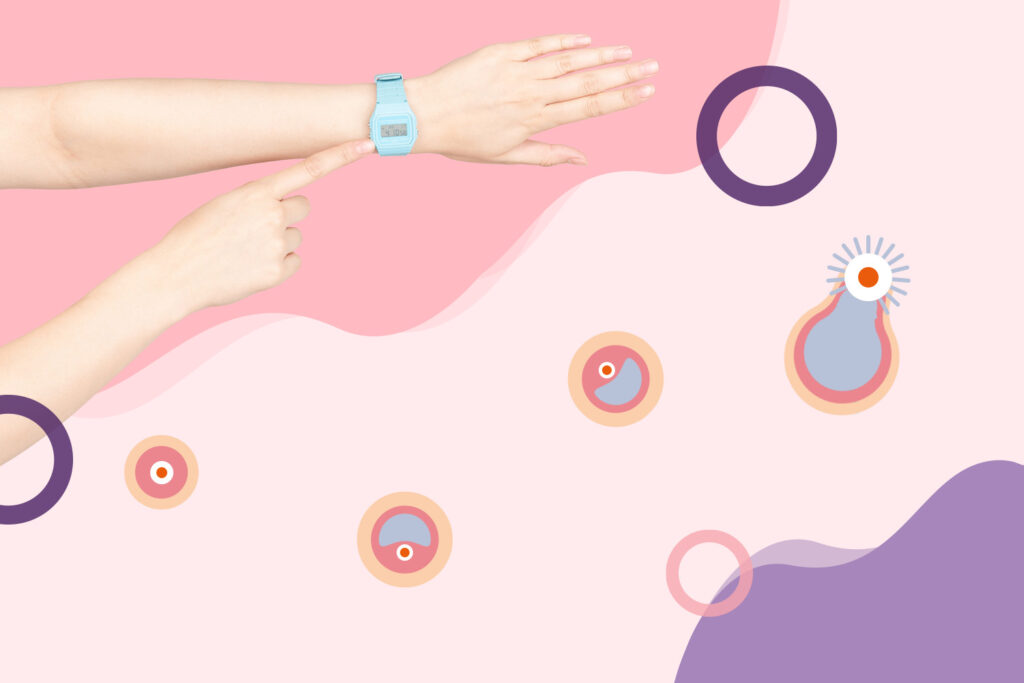Menu
Congratulations! Welcome to the miraculous, unique, and incredible journey through pregnancy which officially begins this week. Your body is busy prepping for your soon- to be pregnancy. Right now, it’s time to gear up yourself for evolution which is the first step towards making a baby.
Surprisingly, during the first week of pregnancy, you are not actually pregnant! Your due date is determined by counting from the first day of your most recent menstruation.
The neural tube that forms the brain and spine is developing at this early stage. Several research shows the incidence of neural tube abnormalities in the unborn child is reduced by up to 70% in women who start taking 400 micrograms of folic acid per day this early.
The probability that two or more eggs will be released during ovulation increases if you are over 35 as you will be producing more follicle-stimulating hormones and follicles.
Surprisingly, during the first week of pregnancy, you are not actually pregnant! Your due date is determined by counting from the first day of your most recent menstruation.
Keep developing brains safe! The incidence of neural tube abnormalities in the unborn child is reduced by up to 70% in women who start taking 400 micrograms of folic acid per day this early.
The probability that two or more eggs will be released during ovulation increases if you are over 35 as you will be producing more follicle-stimulating hormones and follicles.
Trying to get pregnant for the first time gives you mixed emotions of happiness and concern. This first week is when you see your menstrual period and marks the start of your pregnancy journey. It is also when your 40-week pregnancy countdown begins, even though you are not pregnant yet. This is because your due date is determined by counting from the first day of your most recent menstruation.

Evolution is the first step towards making a baby
At 1 week pregnant, you have 39 more weeks to complete your pregnancy journey.
You are supposed to be in your 1st Trimester.
In normal pregnancies, there is no ultrasound done in the first week. However, if you are going through some treatment to get pregnant, the doctor may advise an ultrasound to check for fibroids and follicles in the ovary.
This week your uterus has to shed its unfertilized egg from your last menstrual cycle, and that’s why you’re having your period now. It may seem pretty strange that your pregnancy is dated from the first day of your period cycle. This is because if your average menstrual cycle is 28 days, the first two weeks after the beginning of your period is when your body is most likely to release the matured egg from one of your ovaries (ovulation).
Your uterus lining starts to thicken to accept a fertilized egg, and your most fertile days will be days 12, 13 and 14. However, ovulation occurs around day 21 if your average menstrual cycle is 35days, and your most fertile days will be days 19, 20, and 21. There is a high chance of getting pregnant during the most fertile time if a sperm meets with your egg. If everything goes well, fertilization might take place and you will conceive around week three. Therefore, your physician will calculate your pregnancy from the start date of your last period.
It is advisable to choose a doctor at the start of your menstrual period as it is a critical time for preparation. In addition, you and your partner should talk more openly about your feelings and your expectations and make healthy lifestyle choices.
If you have just taken a pregnancy test that turns out positive, then your pregnancy is likely to have gone a long way than you thought, and you can consider moving on to know about your 4th week of pregnancy.
There is no significant development in the baby during the first week of pregnancy. Symptoms during this week are not attributed to pregnancy but to your menstruation due to fluctuating hormones.
Eating well and getting on an active lifestyle will be superb because this is the time to create a health-promoting environment for you and your future pregnancy.
Balanced nutrition will provide your body with the required vitamins and nutrients needed while expecting. In addition, it will support and increase the energy your body needs to keep some of the pregnancy discomforts at a moderate level. Nutritious foods will also enhance the long-term health of your future child.
The nutritious diet recommended for pregnancy includes:
During pregnancy, the requirement of Folate in the body is increased to maintain the demand for rapid cell division and growth of maternal tissue, placental, and the fetus.
The natural form of vitamin b9 is Folate which is found in foods. At the same time, Folic Acid is a synthetic dietary supplement converted into Folate in the body after consumption, and it is also used in fortifying foods.
Taking folic acid supplements and nutritious foods containing folic acid, especially at the beginning of your pregnancy, will help to prevent congenital disabilities as well as enhance the long-term health and cognitive development of your future child.
Include parental vitamins in your diet after consulting your doctor. Start prenatal vitamins with 400 mcg of folic acids every day. Bring all the necessary changes in your lifestyle and eating habits. Do exercise regularly as it helps curb the demands of labour and motherhood.
Join Our Community
Previous
Next
© Mindsmaking 2024